Pre-Primary Education Background Information
The Education and Training Policy of 2014 version 2023 declared pre-primary education to be compulsory in all public schools and mandated each public primary school to establish pre-primary classes (MoEVT, 2014). Pre-primary education is a formal education system for children (school age 5-6 years) with a duration of at least one year before joining the Primary Education level (URT, 2019). The policy also emphasizes the application of structured play activities to enable pupils to interact with the materials and simplify the process of developing reading, writing, and arithmetic skills (Mabagala & Shukia, 2019; Bakuza, 2019). Furthermore, the Pre-Primary Education Curriculum and Syllabus of 2023 recognizes that structured play activities can effectively contribute to developing reading, writing, and arithmetic skills. Thus, the Curriculum emphasizes the use of structured play-based teaching and learning processes as one of the principles guiding the provision of pre-primary education (MEST, 2016). Likewise, to enhance the development of reading, writing, and arithmetic (3Rs) skills, the pre-primary education curriculum emphasizes the application of structured play activities, which involve teaching by doing. Also, the Curriculum states that since play is the main activity for young children, teachers are encouraged to use play to facilitate teaching and learning (MEST, 2016). In addition, the Pre-Primary Education Teachers’ Guide of 2019 emphasizes the availability of teaching and learning as well as playing facilities for pupils to be engaged in structured play activities outside or inside the class (TIE, 2019).
The application of structured play activities involves the use of puzzles, board games, playing cards, domino, snake play, draft, counters, and toys (TIE, 2016). Since teachers are the main implementers of the pre-primary curriculum that emphasizes the use of structured play activities; it is imperative that school administrators and other education stakeholders involve teachers in the processes of decision-making. Dampson & Afful-Bron (2018) suggest that teachers’ involvement in decision-making empowers them and makes them accountable for ineffective teaching and learning. Teachers’ involvement in most school decisions affecting their use of structured play activities is essential in enhancing the implementation of the pre-primary school curriculum (Ahmed et al, 2019; Muronga, 2017). Some of the decisions that need to involve teachers include setting the school budget for pre-primary education; syllabus analysis; setting up specific lesson objectives; identifying teaching and learning resources; assessing pupils’ progress; and mobilising other resources (Mustapha, 2015).
Problem Statement
There has been a growing concern about the increasing trend in the numbers of Standard One (STD) I repeaters at the national level from 68,571 in 2018 to 75,945 in 2021 (URT, 2018; 2019; 2020 and 2021). Repetition occurs when an STD I pupil fails to join STD II because of an inability to read, write, or perform simple arithmetic after failing to pass the 3Rs assessment test despite attending pre-primary school which is a foundation for these skills (MoEVT, 2014, URT, 2021). Regardless of the emphasis in the Policy, Curriculum, and Teacher’s Guide on the application of structured play activities in pre-primary schools to enhance the development of the 3Rs, studies have found that there is low implementation of structured play activities in these pre-primary schools (Petro, Lyamtane and Vumilia, 2023). Studies such as Petro, Lyamtane, and Vumilia, (2023) have revealed that there are several factors including a lack of professional pre-primary teachers, poor infrastructures, and inadequate teaching and learning materials that are attributable to poor performance in pre-primary school. This situation is a stumbling block towards the achievement of the objectives of the pre-primary education level as specified in the Education and Training Policy of 2014 which stipulates that the 3Rs skills are expected to be taught and developed in the pre-primary level. Thus, the proposed project aims to encourage the use of structured play activities in public pre-primary schools in Tanzania to enhance the development of 3Rs skills among pupils.
Project Objectives
- To design and implement an instructional material for structured play activities that are suitable for pre-primary children, taking into account their developmental stages and learning needs.
- To provide professional development and training sessions for pre-primary teachers to equip them with the knowledge and skills to effectively incorporate structured play activities in their classrooms.
- To regularly assess and evaluate the effectiveness of structured play activities in enhancing the development of reading, writing, and arithmetic skills.
- Design a capacity building workshop for teachers to enhance creativity in development of new techniques and involve new types of play that will fit children’s own situations and backgrounds.
Project Justification
The proposed project is intended to support the implementation of the pre and primary education system as outlined in the Education and Training Policy, 2014; the Pre-Primary Education Curriculum and Syllabus of 2016; the Pre-Primary Education Teachers’ Guide of 2019; National Five Year Development Plan 2021-22 – 2025-26; Fee-Free Basic Education Policy of 2016, among others.
The Project is directly aligned with the mandated goals of the pre-primary curriculum introduced in the 2014 education policy, which emphasizes the importance of establishing structured play in all public pre-primary schools. The Pre-Primary Education Teachers’ Guide of 2019 stresses the importance of providing teaching and learning, as well as playing facilities for pupils. This emphasizes the need for appropriate resources and support for teachers to effectively implement structured play activities. This recognition reinforces the significance of structured play in facilitating children’s cognitive, social, emotional, and physical development. The proposed project supports the increase in Gross Enrolment Ratio (GER) in pre-and primary schools as provided for in National Five-Year Development Plan 2021/22 – 2025/26; Fee-Free Basic Education Policy of 2016.
The proposed project prescribes the use of apt materials such as puzzles, board games, playing cards, and other components that stimulate cognitive skills in children, giving them a hands-on approach to learning. The project is important in the Enhancement of the 3Rs skills of pupils in the pre-primary schools. Reading, writing, and arithmetic (3Rs) are fundamental skills for children at the pre-primary level. The Project aims to boost these skills through interactive play activities. These activities combine learning with enjoyment, making it easier for young children to grasp basic concepts.
Overall, the proposed project aligns with educational policies, national development plans, curriculum guidelines, and instructional support materials in Tanzania. It recognizes the value of structured play in early education and aims to enhance the 3Rs skills of children through the implementation of structured play activities, ultimately providing them with a solid foundation for their future academic success.
PRIORITY NEEDS
Pre-and primary education is faced with several priority including enhancing teaching and learning, expansion of classrooms, increase number of teachers and teaching and learning materials. The structured play activities for enhancing the developments of 3Rs skills among pupils is considered as the priority needs in public pre-primary schools in Tanzania. The justification for considering structured play activities for enhancing the development of 3Rs skills as a priority need in public pre-primary schools in Tanzania can be understood by examining the broader context of pre-and primary education and the specific challenges it faces.
Pre-and primary education systems often face challenges in delivering quality teaching and learning experiences to young children. By prioritizing structured play activities, which are engaging and interactive, the teaching-learning process can be made more effective and enjoyable. Play-based activities have been proven to promote active learning, critical thinking, problem-solving, and creativity among children (Petro, Lyamtane and Vumilia, 2023). Public pre-primary schools in Tanzania face overcrowding classes and insufficient infrastructure to accommodate all enrolled children. Structured play activities can be conducted in various spaces, including outdoor areas or within the existing classrooms, allowing for flexibility in terms of physical space requirements. This help to maximize the use of available infrastructure while promoting quality learning experiences.
While limited access to teaching and learning materials can hinder the quality of education, structured play activities often do not require extensive resources or specialized materials. They can be designed using locally available and low-cost materials, such as natural objects, household items, or recycled materials. This makes play-based learning a cost-effective approach that can be implemented despite resource constraints. Structured play activities are well-suited for addressing the holistic development of children, including their cognitive, social, emotional, and physical development. By focusing on the development of 3Rs skills within play activities, children acquire foundational academic competencies while simultaneously developing broader skills and abilities required for overall growth and well-being.
The emphasis on enhancing 3Rs skills through structured play activities aligns with national goals and strategies for pre-and primary education in Tanzania. The focus on literacy and numeracy skills at an early age is critical for achieving the broader goals of improving educational quality and outcomes. By the prioritization of structured play activities for enhancing 3Rs skills, public pre-primary schools will be able to address multiple priority needs simultaneously. These activities offer a versatile and inclusive approach to teaching and learning that can overcome challenges related to limited resources, infrastructure, and teacher capacity while facilitating the development of essential literacy and numeracy skills in young learners.
PROJECT BENEFICIARIES
Generally, the project beneficiaries include pre-primary children, teachers, schools, parents, communities, and the education system in Tanzania. By focusing on the development and implementation of structured play activities, the project aims to enhance the educational experience and outcomes for all involved.
Pre-primary pupils
The primary beneficiaries of the project are the pre-primary children themselves in the project area. By incorporating structured play activities into their learning experiences, children will benefit from a more engaging and interactive approach to education. They will have the opportunity to develop their 3Rs skills (reading, writing, and arithmetic) in a playful and enjoyable manner, thus fostering a love for learning and setting a strong foundation for their academic journey. Based on the annual enrolment in pre-primary schools in Arusha region, the proposed project is expected to benefit more than 290,000 pre-primary pupils in the duration of 5 years.
Pre-primary School Teachers
The project will benefit more than 537 pre-primary teachers in project area by providing them with training and professional development opportunities in play-based teaching methods. Teachers will gain skills and knowledge on planning and implementing structured play activities, as well enhance their teaching approaches and overall instructional practices. This is expected to ultimately increase their job satisfaction and effectiveness as educators.
Pre-primary Schools
The project aims to improve the quality of education in more than 537 pre-primary schools in Arusha region by promoting the use of structured play in the project area. By implementing this approach, schools will create a more stimulating and child-centred learning environment, while fostering the overall development of children. The project will also provide resources and materials for structured play, in order to enhance the teaching and learning process in pre-primary schools.
Parents and Communities
Parents and communities are indirect beneficiaries of the project. Through the implementation of structured play activities, children’s learning and development will be enhanced and which positively impacts their academic achievements and future prospects. Parents will see their children engaging in meaningful and enjoyable learning experiences, and communities will benefit from having well-prepared children who are equipped with essential foundational skills
Education System
The project aligns with the education system in Tanzania and supports the implementation of the Education and Training Policy and Pre-Primary Education Curriculum. By promoting the use of structured play activities, the project will contribute to the overall improvement of the education system by providing a more child-centered and effective approach to pre-primary education.
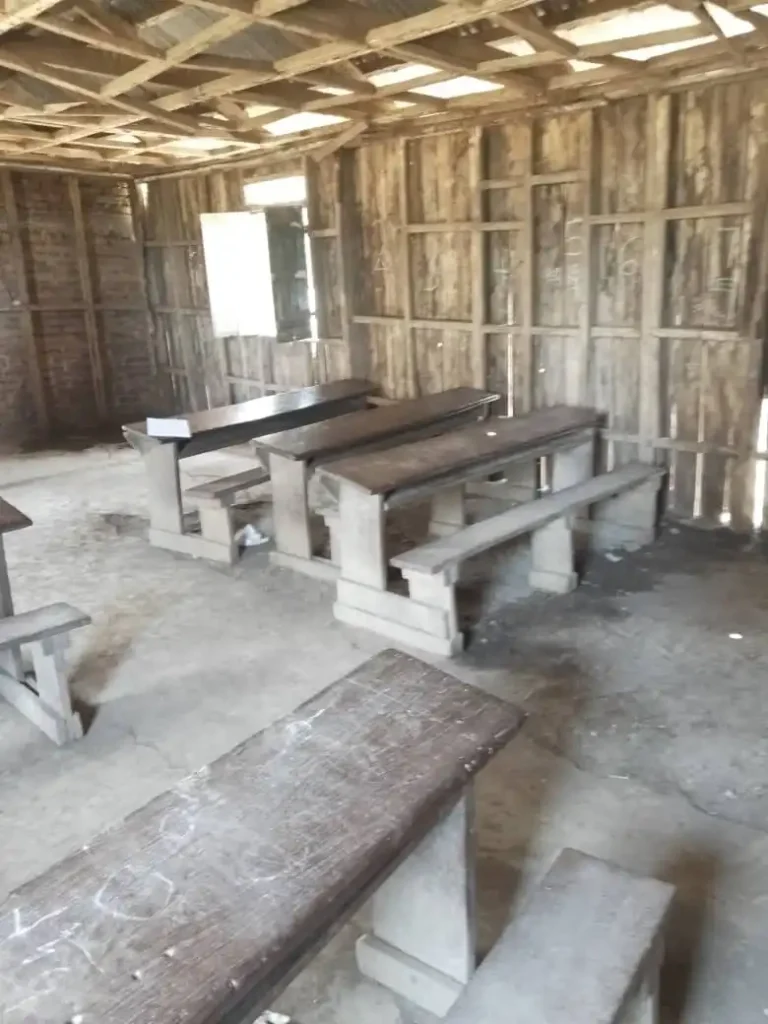
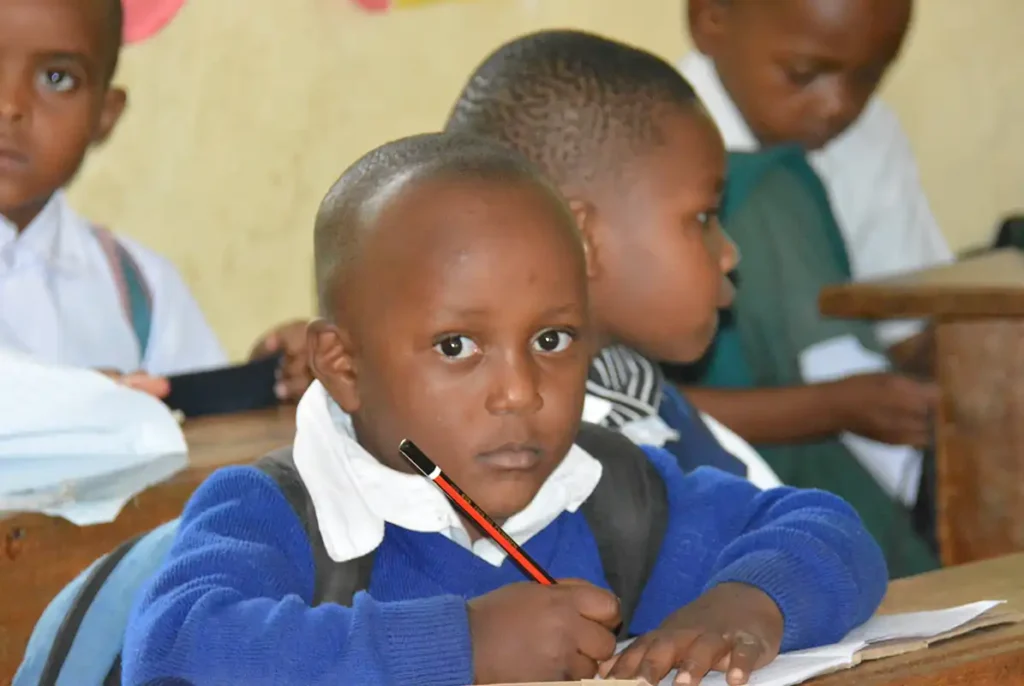
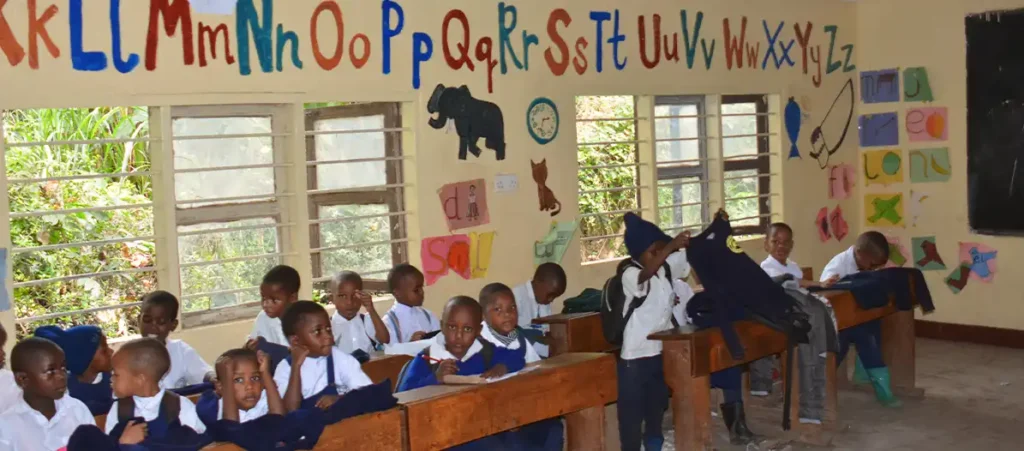
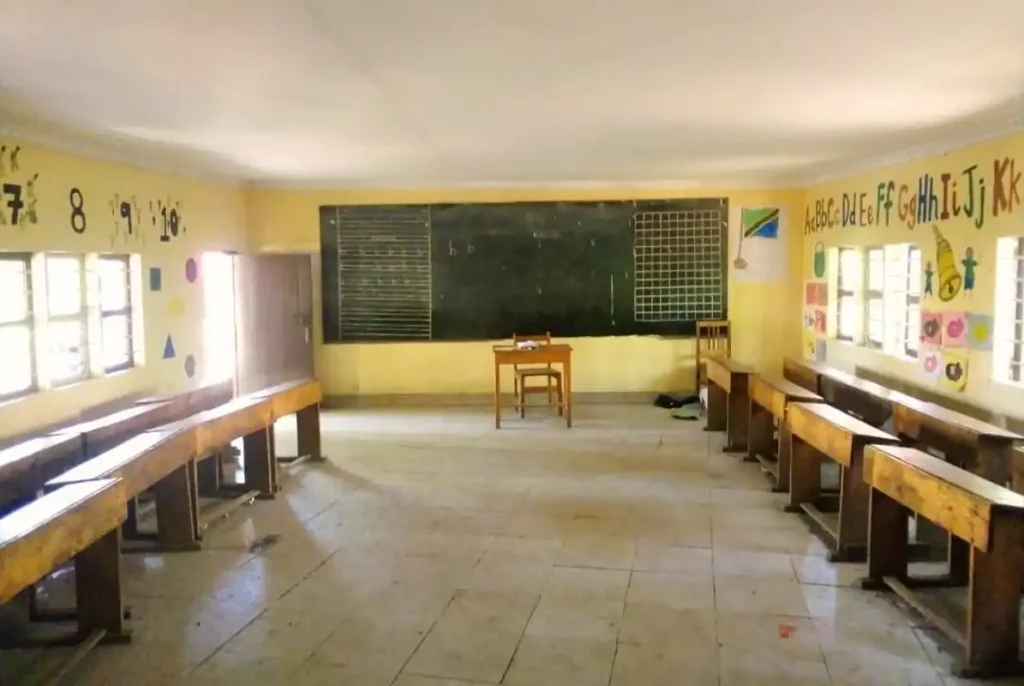
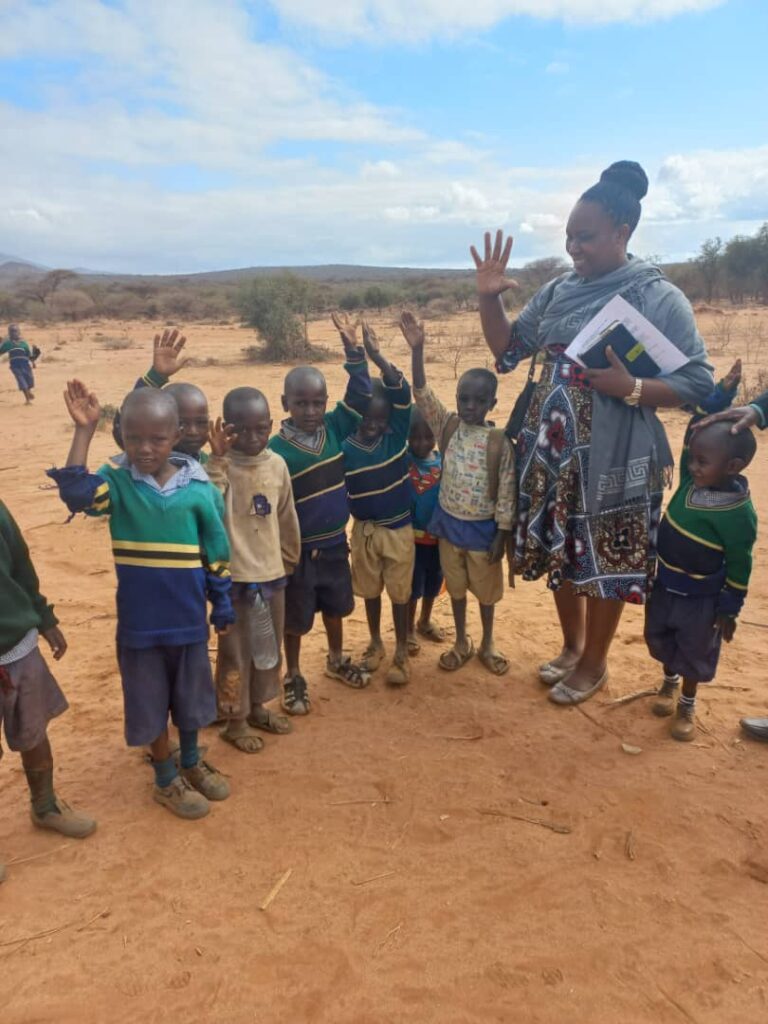
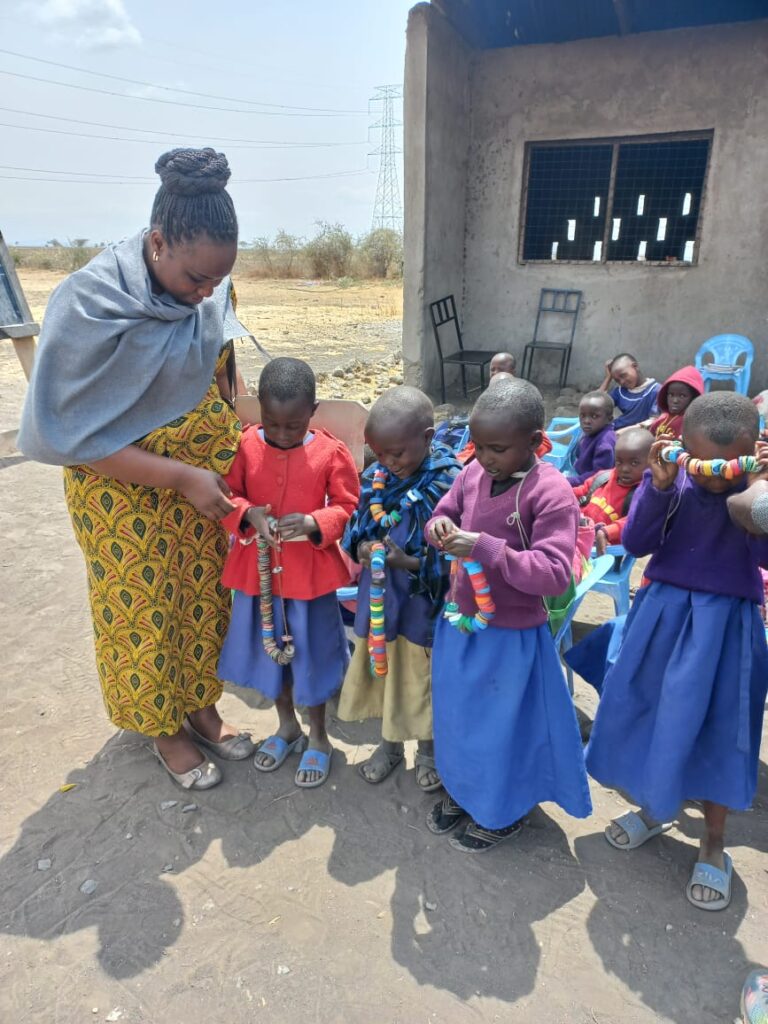
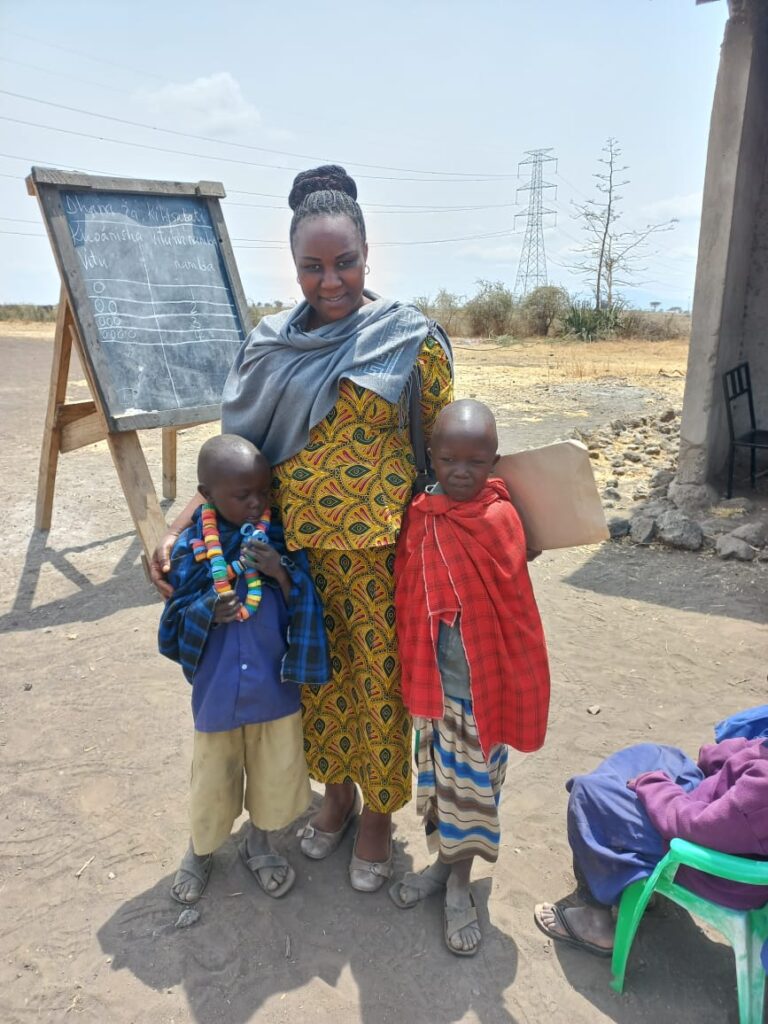
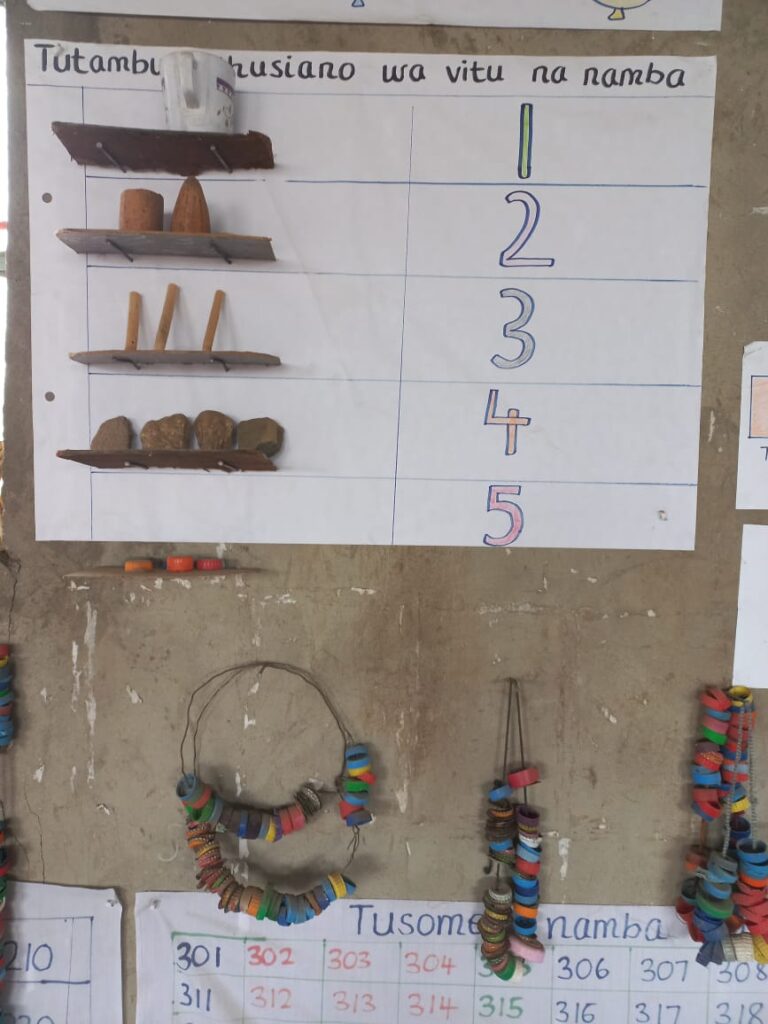
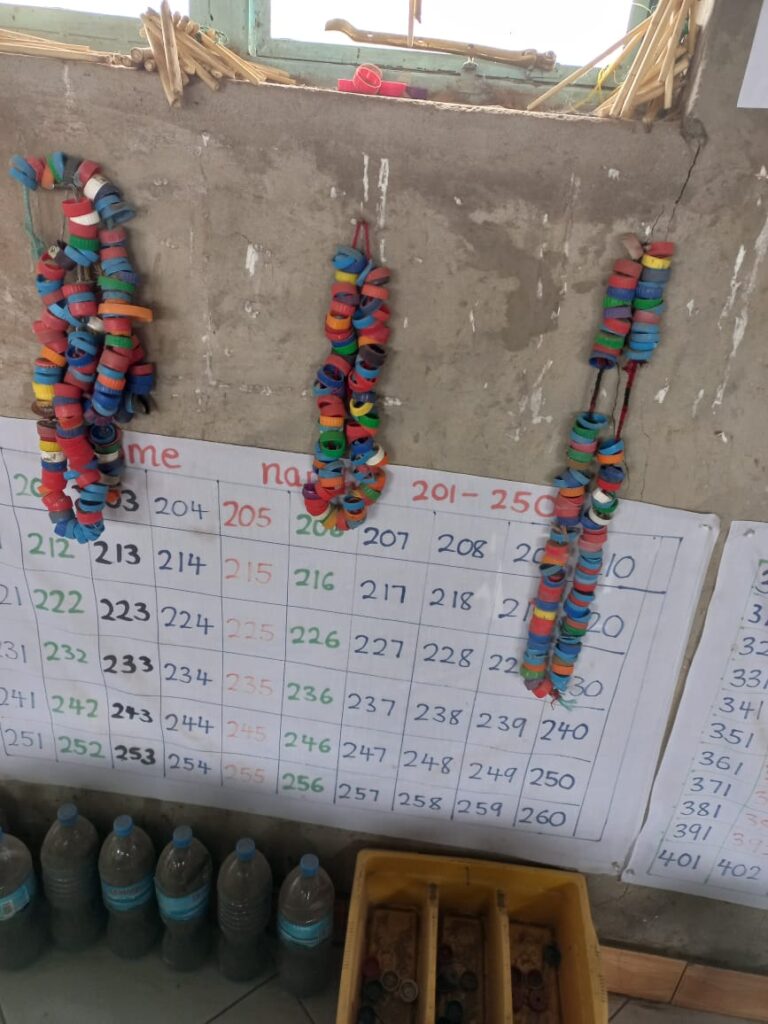
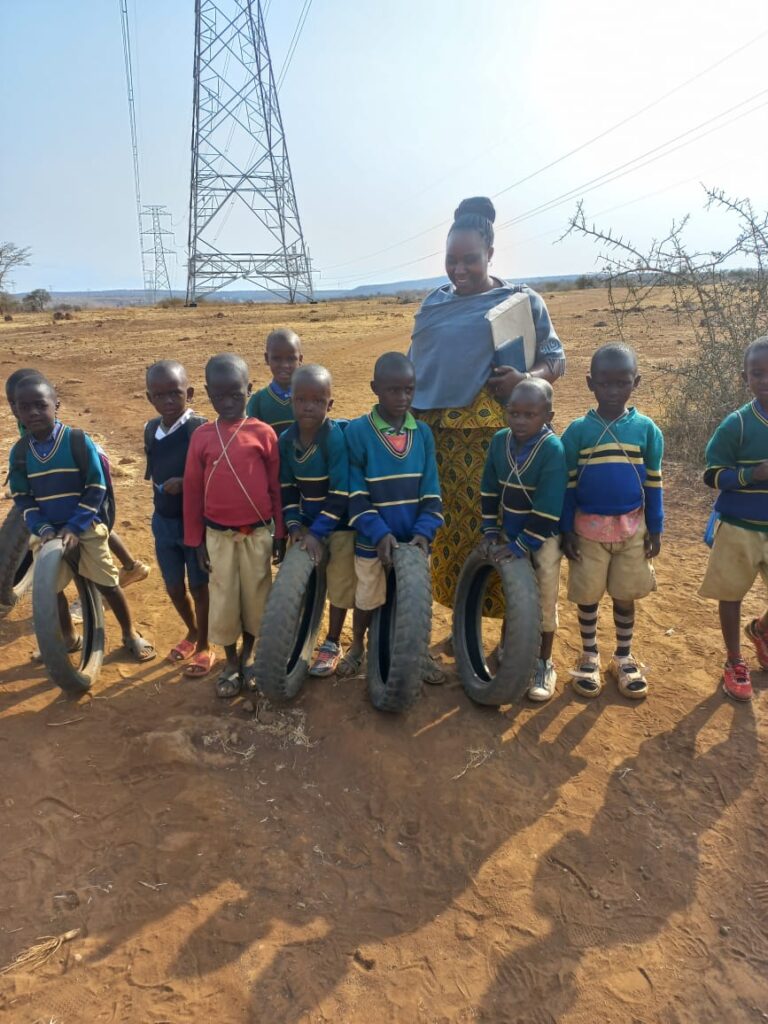
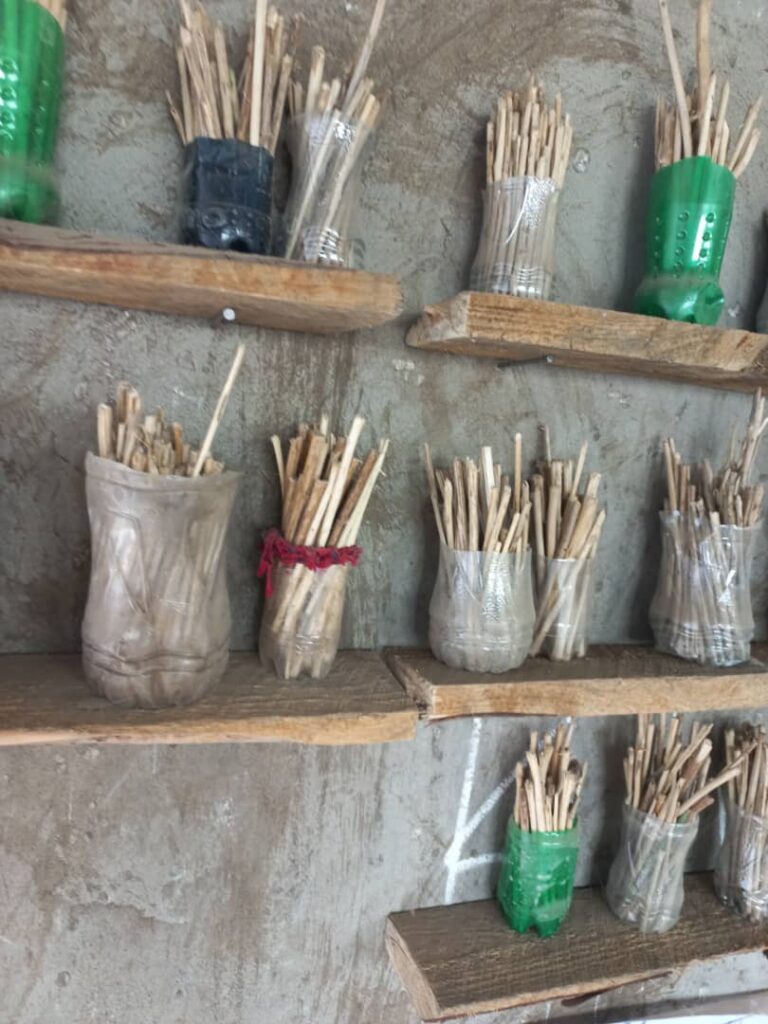
PROJECT AREA
The proposed project will be implemented in Arusha region. The Region is divided into one city and six districts, each administered by a council. These include Arusha City, Arusha District, Arumeru District, Karatu District, Longido District, Monduli District and Ngorongoro District. According to the Tanzania Education Sector Performance Report (2019), the enrolment in pre-primary schools in Arusha region was 57,134 pupils in 537 pre-primary schools in 2019. In 2020, more than 9% of the pupils in the region repeated STD I due to lack of skills on the 3Rs skills. This high repetition rate highlights the urgent need to address this issue and improve the quality of pre-primary education in the region. Implementing the project in Arusha region will positively impact early childhood education by focusing on enhancing the 3Rs skills and listening skills among pre-primary pupils . By designing and implementing instructional materials, providing professional development and training for teachers, supplying necessary resources, and creating stimulating play spaces, the project aims to address the identified challenges and improve the overall quality of education in the region.
PROJECT ACTIVITIES AND OUTPUTS
Project activities and outputs for each objective is provided below:
Objective 1. To design and implement an instructional material for structured play activities that are suitable for pre-primary children, taking into account their developmental stages and learning needs.
Activity 1.1: Conduct a needs assessment for structured play activities
The project will assess the current state of structured play activities in public pre-primary schools in the Arusha region, including the availability of materials, teacher knowledge, and implementation practices/competences..
Output 1.1: Needs assessment report
Activity 1.2: Develop the instructional material for structured play activities
The project will collaborate with education experts, curriculum developers, and pre-primary teachers to design comprehensive and age-appropriate instructional materials for structured play activities, aligned with the developmental stages and learning needs of pre-primary children.
Output 1.2: The instructional materials developed.
Activity 1.3: Piloting the instructional material of structured play activities
The proposed project will select a sample of few public pre-primary schools in the Arusha region to pilot-test the instructional material. This pilot process will enable to evaluate the effectiveness and suitability of the material, gather feedback from teachers and students, and make necessary revisions.
Output 1.3: The public pre-primary schools piloted with the instructional materials
Activity 1.4: Production and distribution of structured play activities
Once the instructional material is finalized, the project will produce and distribute copies to public pre-primary schools across the Arusha region. This will be used to ensure that each school has access to the necessary resources for implementing the structured play activities.
Output 1.4: The instructional materials produced and distributed in the public pre-primary schools in Arusha region.
Objective 2. To provide professional development and training sessions for pre-primary teachers to equip them with the knowledge and skills to effectively incorporate structured play activities in their classrooms
Activity 2.1. Organize and facilitate interactive training sessions for teachers
Organize and facilitate training sessions for pre-primary teachers in Arusha region to familiarize them with the instructional materials, its implementation strategies, and the importance of structured play activities. Provide them with guidance on utilizing the material effectively in their classrooms.
Output 2.1: The pre-primary school teachers trained for structured play activities
Objective 3. To regularly assess and evaluate the effectiveness of structured play activities in enhancing the development of reading, writing, and arithmetic skills.
Activity 3.1. Monitor progress of the pupils in the public pre-primary schools
Assess the progress of the pupils annually throughout the project. This will be done through formative assessments, such as quizzes, worksheets, or short assessments to measure their reading, writing, and arithmetic skills development.
Output 3.1. Annual monitoring reports
Activity 3.2. Analyze data and evaluate impact of the structured play activities
Analyze the collected data from the assessments, observations, and feedback to evaluate the effectiveness of the structured play activities. Compare the baseline assessments with the post-tests to determine the overall impact on the development of reading, writing, and arithmetic skills.
PROJECT IMPLEMENTATION AND PERFORMANCE INDICATORS
Click Here to Explore Project Implementation
ANTICIPATED PROJECT RESULTS
The anticipated project results of enhancing the use of structured play in public pre-primary schools in Tanzania includes the following:
Improved Learning Outcomes: The project aims to enhance the development of 3Rs skills (reading, writing, and arithmetic) for more than 290,000 pre-primary pupils through structured play activities. Anticipated results include improved literacy and numeracy skills, increased student engagement, and enhanced cognitive development among the pupils.
Enhanced Teaching Practices: By incorporating structured play activities into the curriculum, teachers will have opportunities to adopt innovative teaching strategies and approaches. They will gain the necessary skills and knowledge to effectively facilitate structured play, and consequently cause for more engaging and interactive classrooms that promote active learning.
Increased Teacher Capacity: The project will provide teachers with training and professional development opportunities related to structured play activities. This will expand their understanding of play-based learning and equip them with the necessary pedagogical approaches that will enable them to create stimulating learning environments that will support s pupils’ holistic development.
Improved Access and Equity: By implementing structured play activities in 537 public pre-primary schools, the project aims to ensure that all pupils, including those from marginalized and disadvantaged backgrounds, have equal access to quality early childhood education. This will contribute to reduce educational disparities and promote inclusivity.
Sustainable Integration of Structured Play: The project aims to establish a sustainable model for integrating structured play into the pre-primary curriculum in Tanzania. By developing training programs, resources and instructional materials, the anticipated result is the long-term institutionalization of structured play activities in public pre-primary schools even after the conclusion of the project.
Improved Research and Knowledge Base: The project will generate insights and data on the benefits and impact of structured play in pre-primary education. This will contribute to the existing body of research and knowledge on early childhood education, leading to evidence-based practices and informing future education policies and initiatives.
PROJECT MANAGEMENT
The proposed project will be collaboratively managed by the head teachers, ward education officers, District Education Officers, Education Quality Assurance Officers, Tanzania Institute of Education (TIE) and Ministry of Education Science and Technology (MoEST) and whose responsibility will be perform the following duties and responsibilities:
Head Teachers
- Collaborate with teachers to incorporate structured play into the curriculum.
- Ensure the implementation of structured play activities within their pre-primary schools.
- Participate in training and professional development sessions provided by the project team.
- Monitor the implementation and effectiveness of structured play in improving children’s learning and development.
Ward Education Officers (WEOs)
- Implement the project at the ward level and ensure its alignment with district and national initiatives.
- Support and provide guidance to Head Teachers in integrating structured play into the pre-primary school curriculum.
- Monitor the progress of the project within their ward.
- Facilitate training workshops and workshops for teachers and staff at the school level.
District Education Officers (DEOs)
- Coordinate and oversee the project at the district level.
- Ensure effective communication and collaboration between the Ministry of Education, Tanzania Institute of Education, Ward Education Officers (WEOs), and Head Teachers.
- Allocate resources and monitor the implementation of structured play in pre-primary schools.
- Provide support and guidance to WEOs and Head Teachers in implementing the project.
Education Quality Assurance Officers
- Provide guidance and support for quality assurance measures related to structured play activities.
- Conduct regular assessments and evaluations to ensure the effectiveness of structured play initiatives.
- Collaborate with TIE and MoVT to design evaluation frameworks and standards for structured play.
- Provide feedback and recommendations for improvement to Head Teachers, WEOs, and DEOs.
- Monitor the implementation of structured play and adherence to quality standards.
Tanzania Institute of Education:
- Develop and revise the curriculum framework to include structured play activities.
- Provide training and professional development for teachers on incorporating structured play into the curriculum.
- Develop teaching materials and resources to support the implementation of structured play.
- Conduct research and evaluation to assess the effectiveness of structured play in pre-primary education.
Ministry of Education Science and Technology
- Provide overall guidance, leadership, and support in implementing the project.
- Develop policies and guidelines for integrating structured play into pre-primary schools.
- Allocate resources and funding to support the project.
- Coordinate and collaborate with other relevant ministries and agencies.
- Monitor and evaluate the progress and impact of the project.
PROJECT MONITORING AND EVALUATION
Both formative and summative monitoring and evaluation will be done to track the progress of implemented activities from the beginning of the project to its completion. This activity will be carried out systematically and regularly to ensure that all project indicators are monitored and evaluated for the project success.
Formative monitoring and evaluation will focus on gathering information and making adjustments during the project implementation, while summative monitoring and evaluation will take place after the project is completed to assess its overall outcome. The formative monitoring and evaluation will be done by conducting regular observations during the structured play activities to assess how participants engage with the activities and identify any challenges or areas for improvement. It will involve administering formative assessments periodically to gauge the participants’ progress in reading, writing, and arithmetic skills. It will also involves gathering feedback from participants, teachers and parents on their experiences with the structured play activities and using their feedback to make necessary adjustments and improvements during the project.
The summative monitoring and evaluation will include compiling and analyzing all the data collected during the project once the project is completed. This includes the baseline data, ongoing monitoring data, and any additional assessments conducted during the project. By using the data collected, the project will assess the outcome of the structured play activities on the development of reading, writing, and arithmetic skills so as to evaluate the extent to which the project has achieved its intended outcomes and objectives.
Monitoring and evaluation of this proposed project will involve different stakeholders within and outside the school. Responsible actors in the proposed project will include:
Head Teachers: Head Teachers are responsible for overseeing the curriculum implementation within the school. Their roles in monitoring include:
- Providing leadership and support to teachers in implementing the curriculum.
- Conducting regular classroom observations to assess the implementation of the curriculum.
- Collaborating with teachers to identify challenges and areas for improvement.
- Facilitating communication between teachers, parents, and other stakeholders regarding the progress of curriculum implementation.
School Committees: The School Committees are representative bodies responsible for supporting the overall management of the school. Their roles in monitoring include:
- Participating in school visits and observations to assess the implementation of the curriculum.
- Engaging in discussions with teachers, students, parents, and other stakeholders to gather feedback on curriculum implementation.
- Providing recommendations to address any identified gaps or challenges in the implementation process.
Parents: Parents play a significant role in monitoring the curriculum’s implementation, as they have firsthand knowledge of their children’s educational experiences. Their roles in monitoring include:
- Attending parent-teacher meetings to discuss their child’s progress and curriculum implementation.
- Providing feedback on the effectiveness of the curriculum in supporting their child’s holistic development.
- Collaborating with teachers and school administrators to address any concerns or suggestions regarding the curriculum.
Ward Education Officers: The Ward Education Officer is a local government representative responsible for overseeing the education system within their jurisdiction. Their roles in monitoring include:
- Conducting school visits and inspections to assess the implementation of the curriculum at the ward level.
- Collecting data and information on the curriculum implementation progress and challenges.
- Collaborating with school administrators and teachers to provide support and guidance on curriculum implementation.
Quality Assurance Officers: Quality Assurance Officers at the Ward, District, Regional, and National levels specialize in assessing the quality of education provision. Their roles in monitoring include:
- Conducting assessments and evaluations of the curriculum implementation.
- Reviewing curriculum documents and lesson plans to ensure adherence to quality standards.
- Collaborating with school administrators and teachers to identify areas for improvement and provide necessary support.
District and Regional Education Officers: District and Regional Education Officers are responsible for overseeing education programs and policies at the district and regional levels. Their roles in monitoring include:
- Conducting periodic evaluations of curriculum implementation across schools within their jurisdiction.
- Coordinating with other stakeholders to gather data and feedback on curriculum implementation.
- Providing recommendations and guidance to school administrators and teachers for improving the curriculum delivery.
TIE, MoEST, PO-RALG, NGOs: These government institutions and non-governmental organizations (NGOs) play various roles in education policy, support, and oversight. Their responsibilities in monitoring include:
- Conducting independent evaluations of curriculum implementation.
- Collaborating with schools and education authorities to gather data and feedback to inform policy decisions and program improvements.
- Providing technical expertise and resources for enhancing curriculum implementation.




